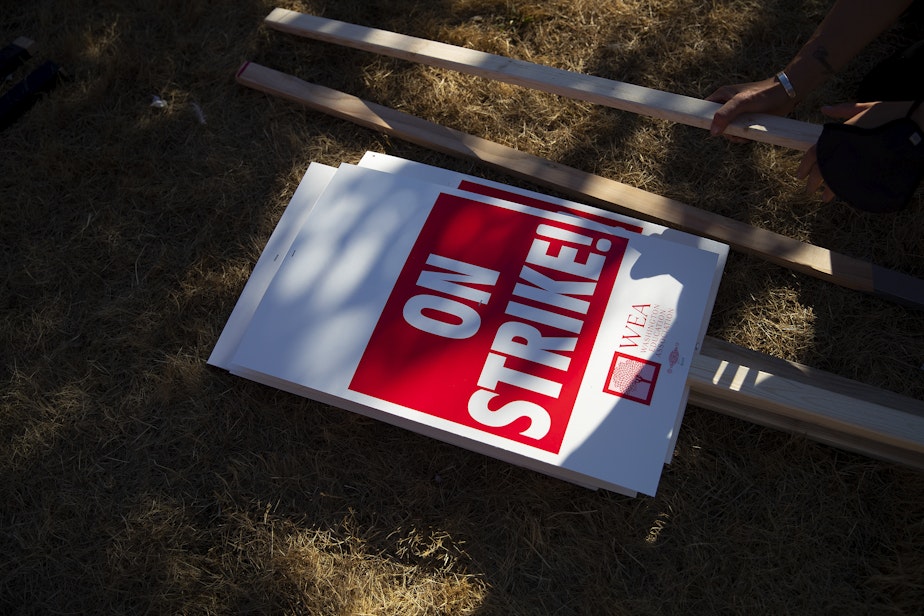Seattle teachers strike hits day 5, but end may be in sight

Seattle kids will be out of school for a fifth day Tuesday amid an ongoing teacher strike, but the end may be in sight.
Seattle Public Schools (SPS) announced on Monday afternoon that school is canceled for another day for all students.
“While Seattle Public Schools (SPS) and Seattle Education Association (SEA) have not yet reached a final agreement, they have come to a resolution on several key proposals. Negotiations continue, and we hope to have a full tentative agreement soon,” the district said in a letter to families and staff. “We apologize for the frustration and anxiety the delay is causing students and families. We know families feel the strain and burden of this process. We want school to begin as soon as possible.”
Teachers and staff went on strike last Wednesday, saying they need to see more from the district when it comes to student support and pay.
As the strike entered its fourth day Monday, a steady stream of families dropped kids at the Rainier Beach Community Center, one of eight activity hubs opened by the city of Seattle to give kids a place to go as negotiations continue.
Most parents expressed support for striking teachers but acknowledged that the delayed start to the year has been tough.
Sponsored
“Two years ago, this wouldn’t have been as big a deal,” said Roini Wadhwani while dropping off her 8-year-old at the community center. “But this week was just a lot of sleepless nights of, ‘What are we going to do with childcare?’… We’re a little bit less resilient because it’s been a hard couple of years.”
Wadhwani said she and her wife both work out of the house, so they’re grateful to have the city’s activity programs available for a full day of care.
Fatiya Mohamed said it’s been hard on her family, too. Her kids were looking forward to starting classes and Mohamed had planned to go back to work when they were in school. Classes being canceled meant her plans had to change.
But Mohamed said she supports the educators.
“We want the best for our staff and teachers,” she said. “We just really need the kids to go back to school and for the educators to get what they want.”
Sponsored
Not all families support the strike, and not every family has the bandwidth to be flexible.
The school district and the teacher’s union will continue negotiating.
Teachers picketing outside Rainier Beach High School Monday said they understand it’s tough on families and they also want to get back into the classroom.
“We want to be in school,” said Nicole McRae-Petty, an educator at Rainier Beach High School. “Many of us are parents ourselves.”
McRae-Petty said the teachers and staff who are striking are out there for the students.
Sponsored
“We want our students to get the services they need,” she said. “We are not going to accept anything less than that.”
There have been several sticking points in contract negotiations between the school district and the union. Some of the biggest include staffing levels and supports for special education and multilingual education. Other staffing levels attached to mental-health supports and educator pay have also been issues of note.
As SPS pushes to move more special-education students into general classes, educators say more support is needed.
Kevin Hiller, a special-education teacher at Rainier Beach High School, said Monday that he considers full inclusion of special education into general education settings the gold standard.
“But full inclusion requires more support, not less. It requires fewer kids in the classroom, not more,” Hiller said.




